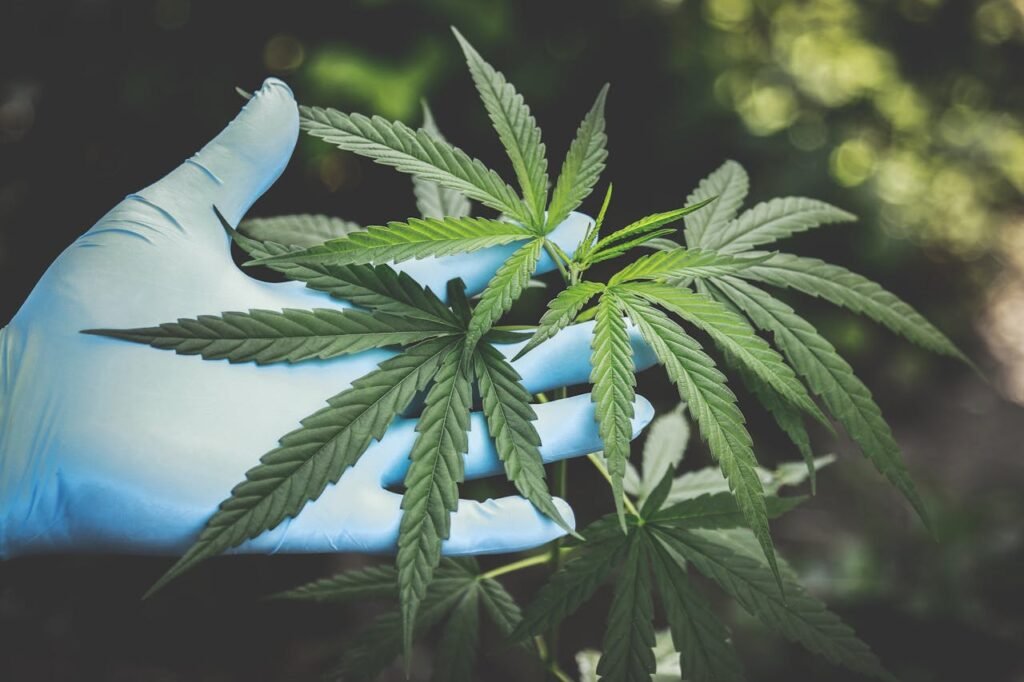The legal landscape surrounding THC-A is unclear and ever-changing. State laws vary widely, and federal hemp regulations are hazy. Understanding the specific rules in your area is crucial to staying compliant and making informed decisions. This article will guide you through the key points you need to know about THC-A’s legal status before you buy.
Understanding THC-A and Its Legal Context
THC-A is the acidic precursor to delta-9 THC (regular THC) in hemp and cannabis plants. In its raw form, the compound is non-psychoactive. However, when heated, THC-A converts to THC through a process called decarboxylation. This transformation makes THC-A a versatile compound with varying legal implications based on how it’s processed and whether it comes from hemp or cannabis.
The 2018 Farm Bill legalized hemp and its derivatives, including THCA, defined as a Cannabis sativa plant with less than 0.3% delta-9 THC (regular THC) by dry weight. This legislation opened the door for THC-A sales. However, legislators’ interpretations of the Farm Bill and hemp rules vary significantly by state.
So, is THC-A illegal? THC-A is illicit when it comes from cannabis that exceeds 0.3% delta-9 THC. However, hemp-derived THC-A legality is much more complicated.
Federal vs. State Laws: Where Does THC-A Stand?
Federally, THC-A is legal as long as it is derived from hemp containing less than 0.3% delta-9 THC by dry weight. However, the federal standard does not necessarily translate to state-level legality. Many states have their own regulations that either restrict or outright ban the sale and use of hemp-derived THC-A products.
For instance, states like Idaho and Kansas have strict laws that prohibit any form of THC, including THC-A, regardless of its source or concentration. In contrast, states like Florida and Georgia align more closely with federal guidelines. They allow THC-A sales as long as the products meet the 0.3% delta-9 THC threshold.
States That Restrict or Ban THC-A
Roughly 25 states have restricted THC-A access through laws that surpass the Farm Bill’s THC potency rules. While federal law only references “delta-9 THC” in its 0.3% threshold, many states also include THC-A in their “total THC” calculations. Such regulations effectively ban THC-A products designed for smoking or vaping.
Other states go even further, outright prohibiting all forms of hemp-derived THC. Some examples include Idaho, Kansas, Louisiana, Oregon, and California.
Idaho
Idaho has some of the strictest hemp laws in the U.S. The state bans all forms of THC, including THC-A, regardless of whether it is derived from hemp or marijuana. This means that THC-A products are illegal in Idaho, even if they comply with federal hemp regulations.
Kansas
Kansas also has stringent laws regarding THC. While hemp-derived CBD is legal in Kansas, the presence of any THC, including its acidic form, may make the product illegal.
Louisiana
Louisiana has specific restrictions on hemp products, particularly those intended for inhalation. The state prohibits smokable hemp sales, including high-THC-A flower. Additionally, Louisiana’s regulations require that any hemp product sold within the state contain less than 1% total THC, including both delta-9 THC and THC-A.
Oregon
Oregon enforces a “total THC” rule, meaning the combined concentration of delta-9 THC and THC-A in any hemp product cannot exceed 0.3%. This rule impacts THC-A flower and other smokable products. Products exceeding 0.5& total THC can only be sold in licensed cannabis dispensaries.
California
California includes THC-A in its total THC calculations, meaning that products containing high levels of THC-A may not meet the legal threshold. Additionally, California has restrictions on smokable hemp products, which impacts the availability of THC-A flower.
States with Less Restrictive THC-A Laws
Approximately 24 states have less restrictive hemp laws that align more closely with the 2018 Farm Bill. Places like Florida, Georgia, Alabama, and Tennessee allow THC-A products as long as they comply with the 0.3% delta-9 THC requirement.
Florida
Florida permits the sale of hemp-derived products, including those high in THC-A, as long as they contain less than 0.3% delta-9 THC by dry weight. The state does not currently impose additional restrictions on the total THC content.
Georgia
Georgia has similar laws to Florida, allowing the sale of hemp products that meet the federal 0.3% delta-9 THC limit. The state has not enacted total THC laws, meaning that THC-A products that comply with federal regulations can be sold legally.
Alabama
Alabama also permits the sale of hemp-derived products that contain less than 0.3% delta-9 THC. The state does not have additional restrictions on THC-A, allowing consumers to purchase and use these products legally.
Tennessee
Tennessee allows the sale of hemp products with less than 0.3% delta-9 THC. Like Alabama, Tennessee does not impose further restrictions on the total THC content, making it a more accessible market for THC-A products.
The Importance of Knowing State-Specific Laws
Given THC-A’s varying legal status, consumers must be aware of the laws in their specific state before purchasing or using THC-A products. Consumers should also be cautious when traveling with THC-A products, as the legal status can change from place to place. Using or possessing THC-A products in a state where they are illegal can result in consequences, including fines, confiscation of the product, and even criminal charges.
The Bottom Line
The legal status of THC-A is a complex and evolving issue that requires careful attention.
Before using or purchasing THC-A, you must understand the specific laws in your state and how the rules may differ from federal regulations. Whether you live in a state with total THC laws, bans on smokable hemp, or more permissive regulations, staying informed is key to use these products legally and safely.
Photo by Aphiwat chuangchoem:







